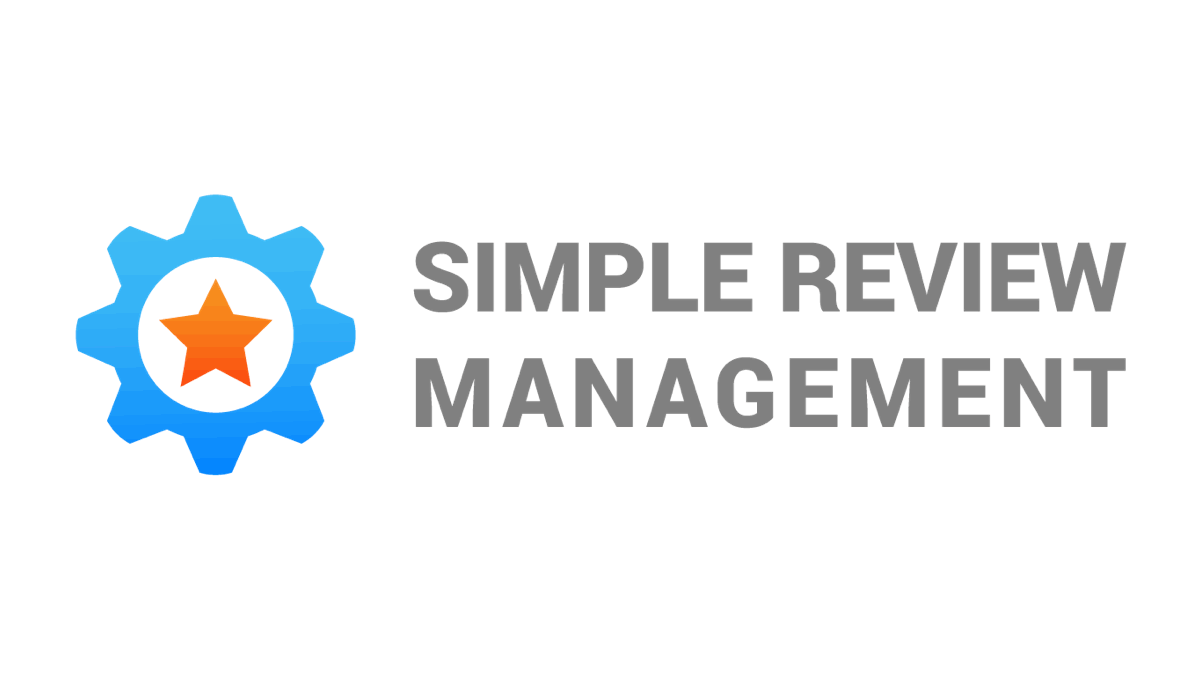Description

AEvent

Simple Review Management
Comprehensive Overview: AEvent vs Simple Review Management
As of my knowledge cutoff date in October 2023, I don't have specific information on a product or service called "AEvent, Simple Review Management." It is possible that it is a product or service that was launched after that date, or it might be a lesser-known tool not widely documented in the sources I have access to.
However, I can provide you with a general structure of how to analyze a software tool in the realm of event management or review management based on typical industry standards and practices. You can use this framework to evaluate "AEvent, Simple Review Management" or any similar tool:
a) Primary Functions and Target Markets
Primary Functions:
-
Event Management: Typically includes features like event scheduling, registration, ticketing, attendee tracking, and communication tools to manage events efficiently.
-
Review Management: In the context of review management, the tool could handle collecting, moderating, responding to, and analyzing customer reviews. This might include integration with platforms like Google Reviews, Yelp, TripAdvisor, etc.
-
Analytics and Reporting: Most tools would offer some form of analytics to track performance metrics related to events or customer satisfaction levels derived from reviews.
-
Integration Capabilities: Integration with CRM systems, social media platforms, or email marketing services to streamline operations.
Target Markets:
-
Event Organizers and Planners: Companies or individuals involved in planning and executing various types of events, from corporate conferences to social gatherings.
-
Hospitality and Retail Sectors: Businesses that rely heavily on customer feedback and reviews to maintain their reputation, such as hotels, restaurants, and retail stores.
-
Marketing Agencies: Agencies that provide services to manage the online presence and customer feedback for their clients.
b) Market Share and User Base
Without specific data on "AEvent, Simple Review Management," it's important to note how one might go about gathering this information:
-
Market Research Reports: Analysts typically provide insights on market share through industry reports. These often require a subscription or purchase but offer comprehensive data on the competitive landscape.
-
User Acquisitions and Partnerships: Announcements of partnerships or major client acquisitions might provide insight into the user base and market presence.
-
Social Media and Review Platforms: Checking platforms like G2, Capterra, or Trustpilot can offer user feedback and approximate the popularity or user satisfaction of a product.
c) Key Differentiating Factors
When evaluating key differentiating factors, consider the following aspects:
-
Unique Features: Any innovative functionalities or technologies that set the tool apart from competitors.
-
Usability and User Experience: How intuitive and easy the software is to use compared to others.
-
Pricing Model: Any unique pricing structure or cost-effectiveness that attracts clients.
-
Customer Support and Training: Quality of customer service, availability of onboarding, and user training resources.
-
Scalability: Ability to handle large volumes of events or reviews efficiently and cost-effectively.
-
Security and Compliance: Data protection measures and adherence to regulations such as GDPR or CCPA, which can be a selling point for businesses handling sensitive customer data.
Ultimately, if you need specific details about "AEvent, Simple Review Management," further research from updated industry sources or direct inquiry to the company behind the product may be necessary to obtain accurate and current information.
Contact Info

Year founded :
2019
Not Available
Not Available
Mexico
http://www.linkedin.com/company/aevent-webinars

Year founded :
2018
Not Available
Not Available
Canada
http://www.linkedin.com/company/simple-review-management
Feature Similarity Breakdown: AEvent, Simple Review Management
To provide a feature similarity breakdown for AEvent and Simple Review Management, I'll go through the aspects you've mentioned:
a) Common Core Features
Both AEvent and Simple Review Management likely share several core features typical of event management and review management software. These might include:
-
Event Scheduling and Management:
- Calendar integration
- Event reminders and notifications
- Task management for event planning
-
Review Management:
- Collection and storage of reviews
- Dashboard for monitoring review metrics
- Automated prompts for review generation
-
Analytics and Reporting:
- Insights on event attendance and engagement
- Review performance analytics
- Customizable reports
-
User Feedback and Response:
- Tools for collecting user feedback
- Integrated communication channels for responding to reviews
-
Integration Capabilities:
- Compatibility with CRM systems
- Integration with third-party applications (e.g., social media, email)
b) User Interface Comparison
The user interfaces (UIs) of AEvent and Simple Review Management would have similarities but likely differ in design philosophy and user experience:
-
AEvent:
- May focus more on a calendar-centric UI, emphasizing ease in navigating through upcoming and past events.
- Could offer a more visual timeline or schedule-oriented interface that's user-friendly for event planners.
-
Simple Review Management:
- Likely uses a dashboard-centric UI, focusing on review metrics and customer feedback.
- Typically features visual data representations (charts, graphs) for quick comprehension of review performance.
Overall, the UI comparison would focus on layout ease, customization options, and how intuitively users can navigate and use the features.
c) Unique Features
Differences in unique features would set these products apart:
-
AEvent:
- May include specific event marketing tools or more advanced attendee engagement features.
- Could also offer virtual event capabilities, including streaming or webinar hosting.
-
Simple Review Management:
- Might provide advanced sentiment analysis tools and detailed review insights.
- Could also include a more robust set of tools for managing online reputation across multiple review platforms.
Unique features in either product would cater to the distinct primary focus of each service: comprehensive event management for AEvent versus detailed review handling for Simple Review Management.
In evaluating these products, it's crucial to consider which unique features align best with your organization's specific needs while acknowledging the importance of shared core functionalities and an intuitive user interface.
Features

Not Available

Not Available
Best Fit Use Cases: AEvent, Simple Review Management
AEvent, Simple Review Management is often designed to help businesses streamline the process of gathering and managing customer feedback through reviews. Here’s how they might best fit specific businesses, projects, and scenarios:
a) Best Fit Use Cases for AEvent
Types of Businesses or Projects
- Event Management Companies: AEvent can be ideal for businesses organizing events, allowing them to automate and manage attendee interactions effectively.
- Online Retailers: Companies that conduct seasonal sales events or product launches benefit from using AEvent to coordinate customer engagement.
- Event Venues: Facilities such as concert halls or conference centers can use AEvent to manage bookings, invitations, and communications for multiple events seamlessly.
- Educational Institutions: Schools, colleges, and training centers conducting webinars, workshops, or lectures can leverage AEvent to manage registrations and feedback.
- Tech Conferences and Expos: These events often require intricate scheduling and participant interaction, making AEvent a critical tool for organization.
b) Preferred Scenarios for Simple Review Management
Scenarios and Use Cases
- Hospitality Industry: Hotels, restaurants, and travel services that depend heavily on customer reviews to attract future patrons will find this tool indispensable.
- Healthcare Services: Clinics and private practices can collect patient reviews to improve service quality and patient satisfaction.
- E-commerce Platforms: Businesses in the online retail space can use review management to build trust and increase conversion rates.
- Local Businesses: Retail stores and service providers looking to enhance their local SEO and build a positive online reputation.
d) Catering to Different Industry Verticals or Company Sizes
Industry Verticals
- Retail and E-commerce: By leveraging review management, businesses can improve customer satisfaction, address negative feedback promptly, and enhance overall shopping experience, significantly influencing purchasing decisions.
- Service Providers: For sectors like healthcare, restaurants, and hotels, timely review management ensures that high service standards are maintained and showcases responsiveness to customer feedback.
- Education and Training: Feedback from students or participants can be quickly acted upon to improve programs and increase engagement rates.
Company Sizes
- Small to Medium Businesses (SMBs): Simple Review Management offers these companies a cost-effective way to build and maintain a favorable online reputation without the need for a large marketing team.
- Large Enterprises: They might use AEvent for coordinating large-scale events or multiple review streams across different business units, ensuring uniformity and efficiency in client engagement strategies.
- Startups: With limited resources, startups can use both tools to accelerate customer acquisition and retention by establishing robust customer feedback systems early in their operations.
Each product supports businesses in achieving specific operational and marketing goals, tailored to handle various scales and complexities effectively. This versatility allows them to be applied across a wide spectrum of industries and organizational sizes.
Pricing

Pricing Not Available

Pricing Not Available
Metrics History
Metrics History
Comparing teamSize across companies
Conclusion & Final Verdict: AEvent vs Simple Review Management
In evaluating AEvent and Simple Review Management, a comprehensive analysis reveals distinct advantages and disadvantages associated with each product. Therefore, it is crucial to assess these factors to determine which solution offers the best overall value.
a) Best Overall Value
The determination of the best overall value depends on the specific needs and priorities of users. If ease of use and integration with existing platforms is paramount, and if the primary focus is on automation features for event marketing, AEvent may emerge as the frontrunner. On the other hand, if the priority is on managing and analyzing customer feedback with robust analytics tools within a streamlined review management framework, Simple Review Management could offer superior value.
b) Pros and Cons
AEvent
Pros:
- Automation Features: Strong automation capabilities for event marketing tasks streamline processes.
- Integration: Seamless integration with various platforms, enhancing workflow efficiency.
- User Experience: Known for a user-friendly interface that reduces the learning curve.
Cons:
- Specialization: Primarily focused on events, which may limit its applicability for users looking beyond event-centric solutions.
- Price: Could be on the higher end for features that cater strictly to event management.
Simple Review Management
Pros:
- Comprehensive Review Tools: Offers a robust suite of tools for collecting, managing, and analyzing customer feedback.
- Insightful Analytics: Strong analytics and reporting capabilities that provide valuable insights.
- Scalability: Highly scalable, making it suitable for businesses of varying sizes.
Cons:
- Complexity: May have a steeper learning curve due to the comprehensive set of features.
- Limited Focus: Primarily tailored for review management, potentially lacking features for extensive event management needs.
c) Recommendations
For users deciding between AEvent and Simple Review Management, the following recommendations can guide their choice:
-
Evaluate Needs: Assess what your primary objective is—if your focus is predominantly on managing events and leveraging automation, AEvent is likely the better fit. However, if your main concern is managing customer reviews and gaining insights from feedback, Simple Review Management should be the choice.
-
Consider Budget: If budget constraints are significant, examine the pricing models and see which solution provides the necessary features at an acceptable cost. Sometimes, additional features may not justify higher costs if they're not used.
-
Test Platforms: Take advantage of trial periods or demos offered by both solutions to get hands-on experience and see firsthand how each platform fulfills your requirements.
-
Future Growth: Consider potential future needs and scalability. It's essential to choose a platform that not only meets current requirements but can also grow with your business.
By carefully analyzing these aspects, users can make an informed decision between AEvent and Simple Review Management, ensuring alignment with their business goals and operational needs.
Add to compare
Add similar companies



